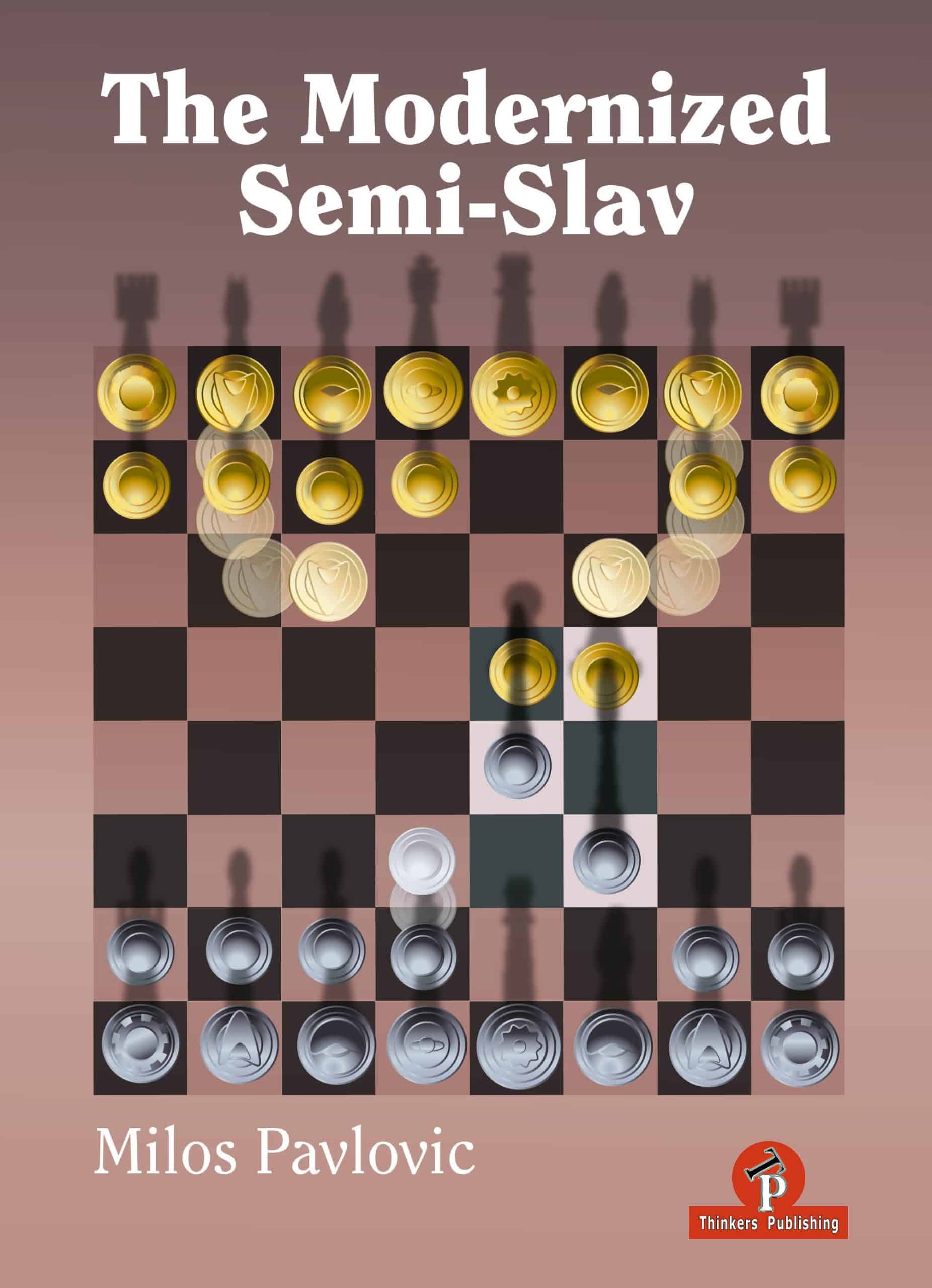Hardback – 176 pages
Teaser The Modernized Semi-Slav
The Semi-Slav Defense transcends its classification as a mere defensive response to 1.d4. It embodies a dynamic and multifaceted system that offers Black not only solidity in defense but also active counterplay and strategic flexibility. Here’s why the Semi-Slav is more than just a defense:
Rather than passively defending, the Semi-Slav allows Black to counterattack in the center and on the flanks. Moves like …e6-e5 and …c6-c5 often lead to sharp, tactical positions where Black can seize the initiative.
By delaying the development of the knight to f6, Black achieves a solid pawn structure with pawns on d5, e6, and c6. This structure provides a firm foundation for Black’s pieces and restricts White’s options for pawn breaks.
The Semi-Slav leads to strategically rich positions with multiple pawn breaks and piece maneuvers. Both sides must navigate intricate plans, making it a fertile ground for creative play and deep strategic understanding. Within the Semi-Slav, there are numerous variations and sub-variations, each with its own unique characteristics and strategic ideas. Players can tailor their repertoire to suit their style and preferences, whether they prefer solid, positional play or aggressive, tactical battles.
The Semi-Slav has been embraced by many top-level players, including World Champions like Vladimir Kramnik and Viswanathan Anand. Their success with the opening at the highest levels of competition demonstrates its effectiveness and versatility.
In essence, the Semi-Slav Defense transcends its classification as a defensive system by offering Black a rich tapestry of strategic possibilities and dynamic play. It is a complete repertoire choice that can suit a wide range of playing styles and preferences.
Milos Pavlovic:
I seldom refer to this opening as the Semi-Slav; instead, I favor the term “Meran,” derived from its historical roots. In my view, Black’s optimal approach involves initiating the …e6 move sequence. For example, starting with 1.d4 Nf6 2.c4 e6 3.Nf3 d5 4.Nc3 c6 sets the stage for a solid and effective repertoire within this system. Many players, myself included, have previously employed the Slav move order 1.d4 d5 2.c4 c6 3.Nf3 Nf6 4.Nc3 e6, yet I find the Meran diverges significantly from the dynamics of traditional Slav positions.
The Meran represents a dynamic opening, akin to the complexities found in the open Sicilian, albeit tempered by the presence of a central pawn on d5, which lends it an added layer of solidity. In this book, I’ve chosen not to delve into the Botvinnik Variation, having explored various ideas extensively in prior publications. Instead, I’ve opted to present a contemporary approach to the 5.Bg5 move order.
Given recent innovations by White players, I’ve dedicated a section to exploring enhancements in the Catalan, reflecting the evolving landscape of this opening.
Throughout the annals of chess, esteemed players have incorporated the Meran into their repertoires. In this century alone, former World Champions such as Kramnik and Anand have demonstrated its effectiveness.









Reviews
There are no reviews yet.